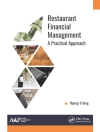Auditing is generally considered to be a particularly practical discipline. This hampers theoretical research, as does its complex nature. The unquestioning acceptance and implementation of rules governing auditing practice could lead to poor outcomes. This book provides a theory of auditing that underpins auditing practice.
Identifying the objectives of auditing in the context of financial reporting, this book examines underlying beliefs to provide a deeper understanding of the concepts of auditing. In analyzing the field from a theoretical perspective, the author encounters important concepts such as materiality, verification, evidence, risk and professional judgement. Philosophical ideas about the social construction of reality are employed to explain the role of theory in a building block of the business world.
This book is vital reading for auditing scholars globally, whilst its conclusions offer an interesting case study in the philosophy of professional judgement












